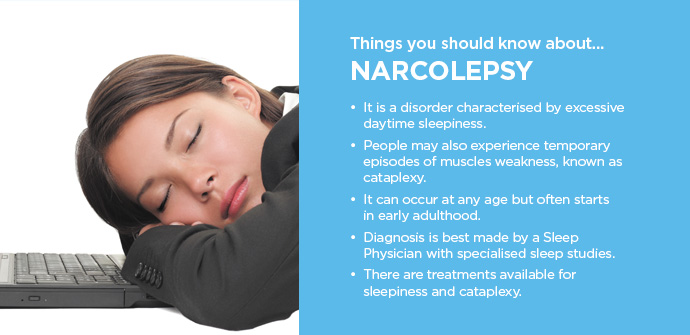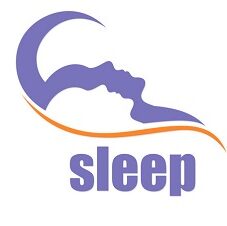Introduction
Narcolepsy is a neurological disorder characterized by excessive daytime sleepiness, sudden loss of muscle control (cataplexy), hallucinations, and sleep paralysis. It affects approximately 1 in 2,000 people worldwide and can significantly impact one’s quality of life.
In this blog post, we will explore the various aspects of narcolepsy, including its symptoms, causes, diagnosis, and available treatments. Understanding this condition is crucial for those affected by narcolepsy and their loved ones, as it can help in managing the symptoms and seeking appropriate medical help.
What is Narcolepsy?
Narcolepsy is a neurological disorder that affects the sleep-wake cycle, causing excessive daytime sleepiness. It is a chronic condition that affects approximately 1 in 2,000 people globally. Narcolepsy is characterized by sudden and uncontrollable episodes of sleep during the day, which can significantly impact a person’s daily life.
Causes of Narcolepsy
The exact cause of narcolepsy is still unknown, but research suggests that it may be linked to a combination of genetic and environmental factors. Some studies have shown that certain genes play a role in the development of narcolepsy, while others indicate that an autoimmune response may be involved.
Genetic Factors
Research has found that narcolepsy tends to run in families, indicating a genetic predisposition to the disorder. Certain genes, such as the HLA-DQB1 gene, have been associated with an increased risk of developing narcolepsy. However, having these genes does not necessarily mean that a person will develop the condition.
Autoimmune Response
Another theory suggests that narcolepsy may be caused by an autoimmune response, where the immune system mistakenly attacks certain cells in the brain that regulate sleep and wakefulness. This could potentially be triggered by an infection or other environmental factors.
Symptoms of Narcolepsy
Narcolepsy is characterized by excessive daytime sleepiness, but it can also present with other symptoms. These may include:
- Excessive daytime sleepiness: Individuals with narcolepsy often experience overwhelming drowsiness during the day, leading to sudden and uncontrollable sleep attacks.
- Cataplexy: This symptom involves a sudden loss of muscle tone, usually triggered by strong emotions such as laughter or anger. It can cause weakness or complete paralysis, making it difficult for individuals to move for a short period of time.
- Hallucinations: Some people with narcolepsy may experience vivid and often frightening hallucinations, either when falling asleep or waking up.
- Sleep paralysis: This occurs when individuals are temporarily unable to move or speak while falling asleep or waking up. It can last for a few seconds to a few minutes.
- Disrupted nighttime sleep: People with narcolepsy may also experience fragmented and disrupted sleep patterns, including frequent awakenings during the night.
Diagnosis and Treatment
Diagnosing narcolepsy can be challenging, as its symptoms can be similar to other sleep disorders. A healthcare professional will typically conduct a thorough medical history review, physical examination, and may also order specialized sleep tests, such as a polysomnogram and a multiple sleep latency test, to confirm the diagnosis.
Although there is no cure for narcolepsy, several treatment options are available to manage its symptoms and improve the quality of life for individuals living with the condition.
Medications

Stimulant medications, such as modafinil and armodafinil, are commonly prescribed to help reduce excessive daytime sleepiness in individuals with narcolepsy. These medications work by promoting wakefulness and increasing alertness.
Antidepressant medications, such as selective serotonin reuptake inhibitors (SSRIs), can be used to help manage symptoms of cataplexy and improve nighttime sleep.
Understanding Narcolepsy: Excessive Daytime Sleepiness
Summary
Narcolepsy is a neurological disorder that causes excessive daytime sleepiness and other related symptoms. It is estimated to affect around 1 in 2,000 individuals globally. The condition can lead to sudden episodes of uncontrollable sleepiness, muscle weakness or paralysis (cataplexy), vivid hallucinations, and sleep paralysis. These symptoms can significantly impact daily life, causing difficulties at work, school, and in personal relationships.
The exact cause of narcolepsy is still not fully understood, but it is believed to involve a combination of genetic and environmental factors. Research suggests that a deficiency in the brain chemical hypocretin, which regulates sleep and wakefulness, plays a crucial role in the development of narcolepsy.
Diagnosing narcolepsy can be challenging as its symptoms can often be mistaken for other sleep disorders or even psychiatric conditions. However, specialized sleep studies, such as polysomnography and multiple sleep latency tests, can help confirm a narcolepsy diagnosis.
While there is no cure for narcolepsy, several treatment options are available to manage its symptoms and improve the quality of life for those affected. These may include medications to promote wakefulness, lifestyle adjustments, and behavioral strategies to optimize sleep hygiene. Support groups and counseling can also be beneficial in coping with the emotional and social challenges that arise from living with narcolepsy.
By raising awareness and understanding of narcolepsy, we can foster empathy and support for those living with this often misunderstood condition. Stay tune her explanation look at here now d for upcoming articles that delve deeper into the various aspects of narcolepsy and provide practical tips for managing its impact on daily life.

Welcome to my website! My name is Jack Rosman, and I am a professional Dream Psychologist dedicated to helping individuals achieve better sleep, understand their dreams, and improve their overall well-being. With years of experience in the field, I am passionate about providing effective snoring solutions, sleep therapy, sleep supplements, and dream analysis to enhance the quality of your sleep and unlock the hidden messages within your dreams. Read More

